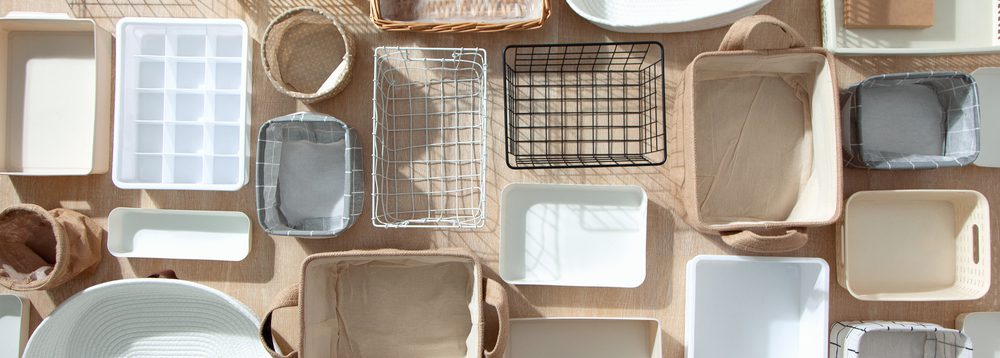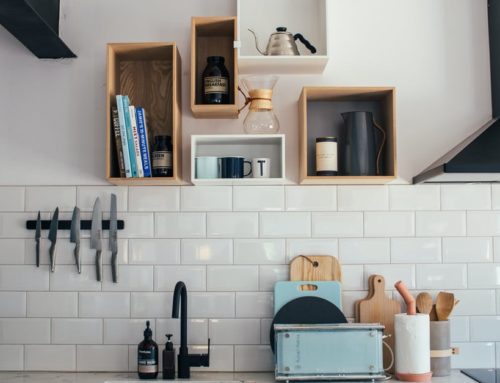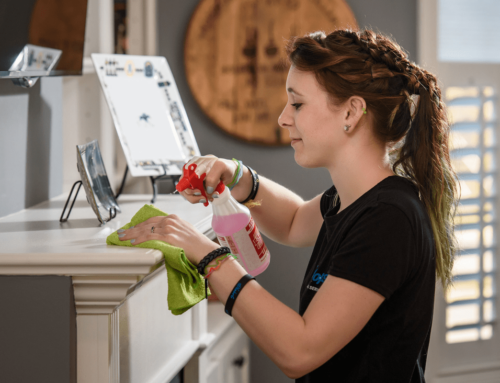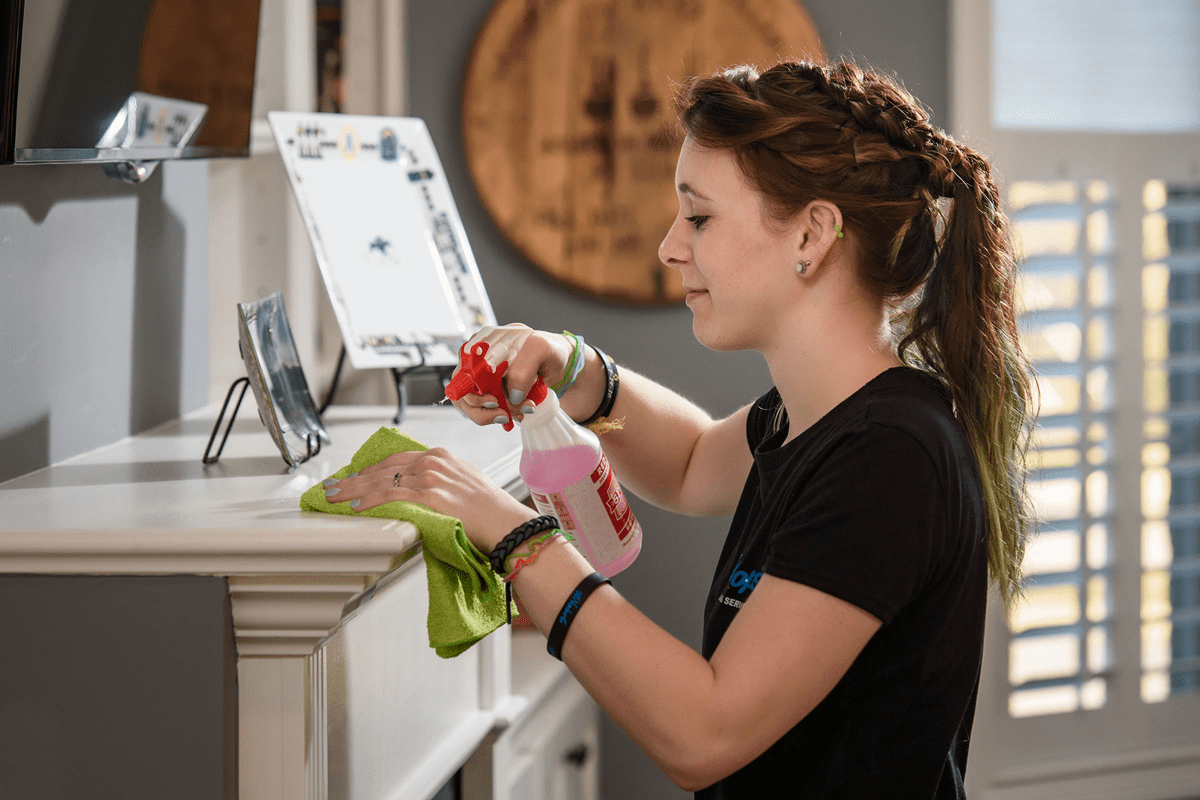
Simplifying Your Life and Transforming Your Home: The Art of Decluttering
Do you often find yourself overwhelmed by clutter? Is your living space filled with an assortment of belongings that make it hard to relax and find what you need? If so, it’s time to declutter your space and simplify your life. In this article, we will explore the benefits of decluttering, provide practical methods for organizing your home, and offer guidance to help you create a serene and clutter-free living environment.
The Impact of Clutter on Your Life
Clutter not only occupies physical space but can also have a significant impact on your mental well-being. A cluttered environment can make it difficult to concentrate, increase stress levels, and even hinder your productivity. By decluttering your space, you can regain control, create a harmonious atmosphere, and transform your home into a sanctuary.
Understanding the Benefits of Decluttering
Creating a Serene Living Environment
When your living space is cluttered, it can feel chaotic and overwhelming. However, by eliminating unnecessary items and organizing your belongings, you can create a serene and inviting atmosphere. A clutter-free environment allows for better flow and promotes a sense of calmness, making it easier to unwind and relax.
Reducing Stress and Anxiety
Clutter has been linked to increased stress and anxiety levels. The constant visual reminders of disorganization can contribute to a sense of unease. By decluttering, you remove these stress triggers and create a peaceful space that promotes relaxation and a clearer state of mind.
Increasing Productivity and Focus
A cluttered workspace or living area can be highly distracting, making it challenging to focus on tasks at hand. Clearing the clutter provides a clean slate for increased productivity. With a well-organized environment, you can streamline your workflow, improve concentration, and accomplish tasks more efficiently.
Getting Started: Preparing for the Decluttering Process
Before diving into decluttering, it’s essential to set clear goals and priorities to ensure a successful outcome. Follow these steps to prepare for the decluttering process:
Setting Clear Goals and Priorities
Begin by identifying the areas in your home that require decluttering and prioritize them based on your needs. Setting specific goals will help you stay focused and motivated throughout the process.
Creating a Decluttering Plan
Develop a plan of action by breaking down the decluttering process into manageable tasks. Set realistic timelines for each area or room and create a schedule that fits your lifestyle. A well-thought-out plan will help prevent overwhelm and ensure steady progress.
Gathering Necessary Supplies
Before you start decluttering, gather essential supplies such as storage bins, trash bags, and labeling materials. Having these items readily available will make the process more efficient and organized.
The Decluttering Process: Step-by-Step Guide
Now that you’ve prepared for the decluttering journey, let’s explore a step-by-step guide to help you navigate through the process successfully:
Start Small: Focus on One Area at a Time
Begin with a small, manageable area, such as a drawer or a closet. Starting small allows you to experience immediate progress and build momentum. As you gain confidence, you can gradually move on to larger spaces.
Sorting and Categorizing: Keep, Donate, Discard
As you go through your belongings, sort them into three categories: items to keep, items to donate or sell, and items to discard. Be honest with yourself and let go of things that no longer serve a purpose or bring you joy.
Tackling Sentimental Items: Making Tough Decisions
Sentimental items can be the most challenging to declutter. When faced with sentimental objects, ask yourself if they truly add value to your life. Consider taking photos of sentimental items to preserve the memories while letting go of the physical clutter.
Organizing Systems: Finding the Right Solutions
To maintain a clutter-free environment, implement effective organizing systems. Utilize storage solutions such as baskets, bins, and shelving to keep items neatly organized and easily accessible. Labeling containers and creating designated spaces for different categories of items will help maintain order and simplify future decluttering efforts.
Maintaining Clutter-Free Spaces
Once you’ve decluttered and organized your space, it’s important to develop habits that support a clutter-free lifestyle. Regularly dedicate time to tidy up, return items to their designated places, and avoid accumulating unnecessary belongings.
Overcoming Common Decluttering Challenges
Decluttering can present various challenges along the way. Here are some common obstacles you may encounter and tips to overcome them:
Emotional Attachment and Letting Go
It’s natural to develop emotional attachments to certain items. However, it’s important to assess whether these attachments are holding you back from creating a clutter-free environment. Remember that memories reside within you, not within physical objects.
Time Constraints and Scheduling
Finding time for decluttering can be difficult, especially if you have a busy schedule. Break the process into smaller tasks and allocate specific time slots to tackle them. Consistency is key, even if you can only spare a few minutes each day.
Handling Paperwork and Digital Clutter
Clutter is not limited to physical possessions. Paperwork and digital clutter can accumulate quickly, leading to disorganization and inefficiency. Establish a system for managing paperwork and set aside time to organize your digital files regularly.
Organization Techniques: Creating Functional Spaces
To maximize the benefits of decluttering, implement organization techniques that enhance the functionality of your spaces:
Utilizing Storage Solutions and Containers
Invest in storage solutions that optimize your space. Utilize baskets, bins, drawer dividers, and shelves to store items efficiently. Make sure to label containers for easy identification.
Maximizing Space in Small Rooms
If you have limited space, get creative with storage solutions. Use vertical space by installing shelves or hooks, choose multi-functional furniture, and utilize under-bed storage. Maximizing every inch of your room will help maintain a clutter-free environment.
Implementing Daily Habits for Long-Term Success
Incorporate daily habits that prevent clutter from accumulating. Make it a habit to tidy up before bed, designate a place for frequently used items, and regularly declutter small areas to stay on top of the organization.
Sustainable Decluttering: Minimizing Waste and Environmental Impact
When decluttering, it’s important to be mindful of minimizing waste and reducing your environmental impact:
Responsible Disposal and Recycling
Dispose of unwanted items responsibly by donating to charitable organizations, recycling materials whenever possible, or repurposing them creatively. Minimize waste going to landfills by being conscious of sustainable disposal methods.
Adopting Minimalist Principles
Consider embracing minimalist principles to prevent future clutter accumulation. Focus on owning fewer items, prioritize quality over quantity, and evaluate purchases based on necessity and long-term value.
The Psychological Benefits of Decluttering
Decluttering not only has physical and organizational advantages but also provides various psychological benefits:
Boosting Mental Clarity and Well-being
A clutter-free space promotes mental clarity and reduces cognitive overload. When your surroundings are organized, your mind can relax and focus better, leading to improved overall well-being.
Enhancing Sleep Quality
A cluttered bedroom can disrupt sleep patterns and hinder relaxation. By decluttering your bedroom and creating a serene atmosphere, you can improve sleep quality and wake up feeling refreshed.
Fostering Creativity and Inspiration
A tidy and organized space can enhance creativity and inspiration. With a clear physical environment, your mind can roam freely, allowing for new ideas and creative thinking.
Decluttering Your Digital Space: Organizing Your Virtual Environment
In today’s digital age, it’s essential to declutter your digital space for improved productivity and peace of mind:
Managing Email Inboxes and Digital Files
Organize your email inbox by creating folders, archiving important emails, and unsubscribing from unnecessary newsletters. Implement a system to keep your digital files organized, such as using descriptive filenames and utilizing cloud storage solutions.
Streamlining Digital Media and Entertainment
Take control of your digital media by decluttering playlists, organizing photos and videos, and deleting unused apps. Streamline your digital entertainment to avoid digital overwhelm and distractions.
Conclusion
Decluttering your space is a transformative process that can significantly impact your life. By simplifying your surroundings and implementing effective organization techniques, you can create a serene and clutter-free living environment. Embrace the benefits of decluttering, reduce stress, increase productivity, and unlock the true potential of your home.
Share this article
Follow us
A quick overview of the topics covered in this article.
- The Impact of Clutter on Your Life
- Understanding the Benefits of Decluttering
- Getting Started: Preparing for the Decluttering Process
- The Decluttering Process: Step-by-Step Guide
- Overcoming Common Decluttering Challenges
- Organization Techniques: Creating Functional Spaces
- Sustainable Decluttering: Minimizing Waste and Environmental Impact
- The Psychological Benefits of Decluttering
- Decluttering Your Digital Space: Organizing Your Virtual Environment
- Conclusion











